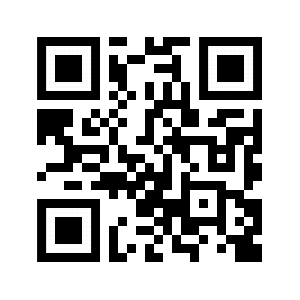Computer Science Education
Overview
This subject group is responsible for the training of education students for the degree Baccalaureus Education (BEd) and the Post-Graduate Certificate in Education (PGCE) in the subjects Information Technology Education and Computer Applications Technology Education. There are no specific prerequisites for prospective students wanting to take these subjects, for which there is currently a great shortage of teachers in schools. The subject group is also responsible for the facilitation of students at Honours, Masters and doctoral levels in these subjects.
The subject group is also responsible for computer literacy modules and modules in the integration of technology in education in the BEd, ACT, ADE and ADT programmes, which are also offered in distance mode.
The staff are also active researchers in the Self-directed Learning (SDL) focus area. They have published several articles to enhance teaching and learning of students in accredited national and international journals in recent years. Members of the staff have also been active in the presentation of papers at academic conferences.
Degree options
Geography and Environmental Education
Overview
The subject group of Geography and Environmental Education is a dynamic and vibrant group within the School of Mathematics, Science and Technology for Education. We aim to provide a high standard of teacher training to empower our students with the knowledge, skills and values needed to become masters in their profession.
The subject Geography, within the undergraduate BEd programme offers a wide range of themes especially selected to include the geography necessary to cover the school curriculum.
Themes:
Africa and South- Africa (physical, economic and population geography), planetary geography, climatology and oceanography
Settlement geography, basic geomorphology, economic geography, environmental geography
Advanced population & urban geography, advanced geomorphology & climatology, subject didactics & methodology, map work, digital geography (GIS, GPS, etc.) and aerial photography
Post-graduate themes and research focus are mainly within the field of Geography Education: Philosophy and methodology in geography education, teaching and learning skills in geography, self-directed learning, active learning and learner centred instruction (practical teaching) in geography education, the integration of various ICTs in Geography education, digital geography and geo-spatial technologies in geography education and environmental education.
Degree options
Mathematics Education
Overview
The subject group Mathematics Education of the Faculty of Educational Science attempts to address the following intellectual puzzle. How can the effective training of Mathematics teachers be achieved through the investigation of realistic contexts in real life Also, how can exciting new ideas in Mathematics education, such as the use of dynamic mathematics software and technology, combined with a learner-centred, investigative approach to learning, be used to enhance the learning experience of prospective Mathematics teachers
In order to provide specialist training for Secondary School mathematics teachers, Primary School mathematics teachers, Mathematical Literacy Teachers and Technology teachers we offer several parallel trajectories within the B. Ed. programme. The focus is on exposing the students to the great ideas within the field of Mathematics and how these ideas enable us to understand, describe and manage real life contexts. We aim to integrate seamlessly with the Method of Mathematics Education as it manifests itself within the B. Ed. and PGCE programmes.
We also participate enthusiastically in the research of Mathematics education, with several of the members of the subject group involved with national research projects. The subject group also provide intensive support for post-graduate students in Mathematics education.
We are proud to say that our activities are characterised by high levels of energy, creativity and enthusiasm, in order to present Mathematics and Mathematics education as the powerful, dynamic, enriching experience it is supposed to be.
Degree options
Natural Sciences Education
Overview
Education students who take the subjects Life Sciences for Education and Physical Science Education qualify to teach in the secondary school sector (grades 10 – 12), whilst students who take the Natural Sciences learning area will be able to teach learners in the Intermediary and Senior Phase (grades 4 – 9). In addition the Post-Graduate Certificate in Education (PGCE) is offered for students who have already obtained a degree which enables them to teach two subjects. Students who intend to take Life Sciences or Physical Sciences must have at least 50% in, respectively, Life Sciences and Physical Sciences in their final matriculation examination. There are no prerequisites for students who want to take the learning area Natural Sciences.
Degree options
Technology for Education
Overview
The programme is focused on aspirant teachers who need to qualify in a certain specialisation area with basic knowledge and a theoretical background to ensure that teaching in Electrical Technology, Mechanical Technology and Civil Technology, Engineering Graphics and Design, as well as Technology takes place within the context of the National Curriculum and Assessment Policy Statement (CAPS).
Research in the subject group focuses especially on the development and improvement of the teaching of Technology at school level as well as in tertiary education. Staff are actively engaged with post-graduate studies or with the supervision of post-graduate students. Papers read at international and national conferences and articles in publications are part of the group’s outputs.
In accordance with developments in the Department of Basic Education with specific reference to specialisation, in the subject group Technology the following specialisation subjects are offered: Electrical Technology (Electronics and Electrical work); Mechanical Technology (Automotive, Fitting and Turning, Welding and Metalwork) and Civil Technology (Woodwork, Building Construction and Civil Services).
Degree options
- Bachelor of Education (BEd)
- Postgraduate degree options
- Postgraduate Certificate in Education (PGCE)
Video and QR code

